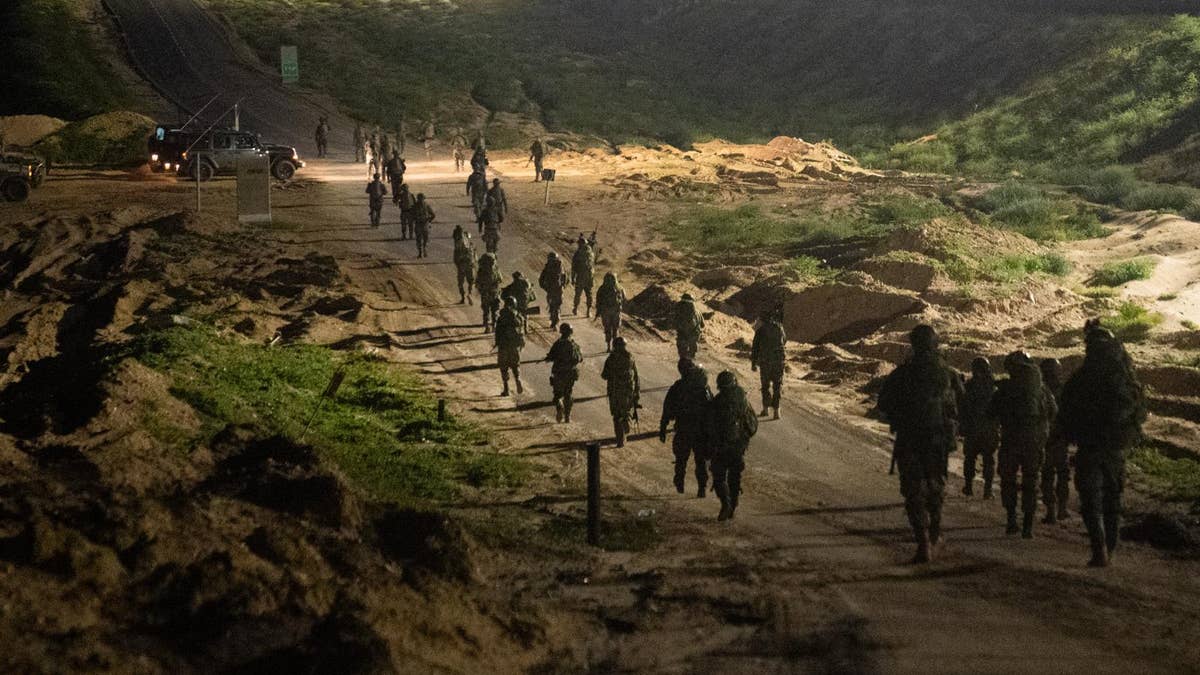Share this @internewscast.com
IDF troops in Gaza
The Israel Defense Forces says it recently concluded the encirclement of Tel al-Sultan in Gaza. (IDF Video)
Israel ramped up its military actions in Gaza last week after a two-month ceasefire ended due to stalled negotiations over hostage releases. The Israel Defense Forces (IDF) initiated a fresh series of air assaults, which were quickly followed by synchronized ground movements in three pivotal regions: the Netzarim Corridor, the northern Gaza coastline, and the southern Rafah district.
With increased support from the United States and advantageous changes in regional dynamics, this new phase marks a significant shift in Israel’s military aims. The focus is moving from diminishing Hamas’s combat capabilities to undermining its control and governance.
“We’ve been in battle with them for 10 days,” said Maj. Gen. Yaakov Amidror, a former Israeli national security advisor. “They’ve only managed to launch seven rockets, which shows the extent of the damage we’ve already caused.”

Israeli troops encircle Tel al-Sultan in Gaza. (IDF)
“We won’t go back to the days when we let them quietly build an army,” Ben Barak told Fox News Digital. “We’ll strike every time we see military training or arms smuggling. They’ll never have tanks or armored vehicles again.”
Ben Barak said Israel can’t remain in Gaza long-term: “If we stay like we did in Lebanon for 19 years, we’ll leave in shame. The only way to win is to have someone else replace Hamas and govern Gaza.”
He also pointed to the West Bank as a partial model: “In the West Bank, the Palestinian Authority governs, and we operate from the perimeter when needed. We need the same in Gaza: an internationally backed civil authority that rebuilds the [Gaza] Strip and keeps Hamas out.”
Still, he cautioned against illusions of peace.
“There won’t be peace in the next 20 years. But like Egypt did with the Muslim Brotherhood, we can suppress Hamas’s ideology and stop it from taking root again.”
Ben Barak also said Gazans who wish to leave should be allowed to: “Let them out. If they have visas and want to go, Israel should let them. It will make military operations easier in a less densely populated area.”
Israeli forces are now deeply embedded in Gaza, with simultaneous operations in the north, south and central regions.
“These aren’t symbolic moves,” Amidror said. “We’re positioning ourselves for the next stage. We will eventually need to reach every tunnel, blow up the infrastructure, and kill every Hamas terrorist. It is achievable, but it will take at least a year.”
–>
















